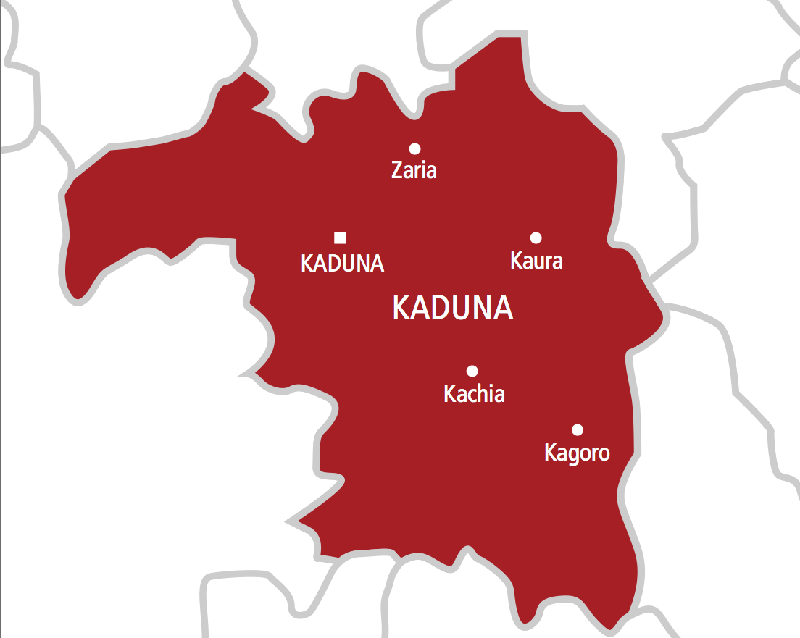‘Banditry forcing orphan girls into early marriage, prostitution’
A development worker, Hajiya Binta Kasimu has decried the high rate of banditry in the country, saying that it has forced many displaced orphaned girls into early marriage and prostitution. Speaking at an experience-sharing workshop on child marriage in the north-west organized by the Kaduna State Ministry of Human Services and Social Development in Kaduna, […]

Map of Kaduna State
A development worker, Hajiya Binta Kasimu has decried the high rate of banditry in the country, saying that it has forced many displaced orphaned girls into early marriage and prostitution.
Speaking at an experience-sharing workshop on child marriage in the north-west organized by the Kaduna State Ministry of Human Services and Social Development in Kaduna, she said the girls go into early marriage because they have no means of survival.
According to her, “Katsina State has the highest rate of banditry and the highest number of Internally Displaced Persons (IDPs), many of whom are from Zamfara, Sokoto and Kebbi states. A lot of the young girls are orphans and have no one to look out for them so they go into early marriage or prostitution because they do not know what to do and where to go. They then go into marriage believing the husband will take care of them.”
She noted that men are being killed due to bandits’ activities leaving many widows and orphans with no means of survival. Kasimu added that the implementation of the many recommendations that have been made to the government has put women and girls at a disadvantage.
Resorting To Violence Never Best Option, Gov Sule Warns Opposition Parties
Oyo, Rivers’ Judiciaries Move To Establish Small Claims Court
However, she called on the government to join hands with other humanitarian organisations to provide aid to women and young girls to address the rising cases of early marriage in the country, especially in Northern Nigeria.
In her remarks, the Acting Governor of Kaduna State, Dr Hadiza Balarabe said that child marriage is one of the key challenges in the north that has an enormous effect on education, and health; including sexual and reproductive health.
She said the state government recognises the root of the problem which is why it prioritises human capital development noting that the government has made efforts to offer the first 12 years of education free and compulsory for all in the state to tackle the challenge.
The state’s Commissioner for Human Services and Social Development, Hajiya Hafsat Baba said that child marriage, whether directly or indirectly is a global issue and harmful practice to societies and advised that children under the age of 18 should not be pushed into early marriage, but allowed to pursue their education.
“Child marriage is often the result of entrenched gender inequality, making girls disproportionately affected by the practice. Ending child marriage will boost efforts toward achieving the Sustainable Development Goals (SDG) by improving access to education, encouraging economic growth, enhancing nutrition and food security as well as improving maternal and child health,” she said.
The Programme Coordinator, Global Innovative for Women and Children, Aminu Babangida the stakeholders including Commissioners of Health, Education and Women Affairs from Kaduna, Kabbi, Zamfara, Jigawa, Kaduna, Katsina and Sokoto states as well as traditional and community leaders is aimed at getting to the root cause of the problem and finding a lasting solution to the problem.
Also, the representative of the United Nations Population Funds (UNFPA), Bahijjatu Garko said, “The Nigeria Demographic Health Survey 2013 reports that nationwide 19.5 per cent of adolescent girls are married before the age of 18 years, child Marriage may seem to be driven by poverty, but the continued practice perpetuates the vicious cycle of poverty that is said to drive it.”
